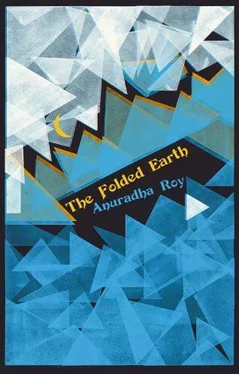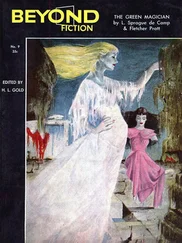Now Diwan Sahib was speaking again, his voice dreamy. “I’ve always thought about the dog rose that it was wild, unglamorous — the scent is light and a bit sharp, and there are more thorns per flower than on almost any other rose. It is the quintessential beginning rose, no breeding, almost no colour, stitched probably by birds a thousand years ago. And yet when you see it, as on that outer wall of this house when it is in full bloom, holding those half-broken stones together — they remind you what is imperishable, real beauty.”
He stopped as if taken aback by his own eloquence and said in his everyday tones: “Where was I? Yes, Corbett. Corbett understood the jungle by looking, and he could tell you its story from the sounds he heard. If he heard a chital far off, he would know whether it was calling its young or calling to warn other animals of a tiger. He walked the forests barefoot when he was a boy. He understood the fall of every leaf and the meaning of a cloud — would it bring a hailstorm or rain.”
He suddenly seemed to remember it was his nephew he was discussing, and not very favourably. “Who am I to criticise?” he said, finishing his gin in one long swallow. “I taught him nothing when he was a boy. I could have.”
“But he said you taught him birdcalls and animal sounds and answered all his wildlife questions,” I said. “So you’re wrong on both counts. He is interested in nature, and you did teach him things.”
“No, it’s different. His interest in nature — it’s not what it seems. He is a complicated man, our friend Veer.”
Diwan Sahib stopped up his caustic words with another slug of gin and changed the subject. “Corbett was one of a kind because he never lost sight of the humans — and I mean the poor, the hill peasants whose cattle and kin were in danger from wild animals. In my days in Surajgarh, in the Nawab’s court, I saw many feudal lords and white colonials who knew a great deal about animals. They could read the jungle almost as well as Corbett. But they couldn’t have — wouldn’t dream of it — sat and gossiped with peasant women as Corbett did, answering all their nosy questions. None of them stayed up nights with a gun, guarding their crops from rats and birds. Why do you think they called him Carpet Sahib and adored him all over these hills? He would have understood Puran in a second.” He laughed bitterly. “He’d have understood that poor idiot’s grunts and groans and whimpers and made sense of them. He’d have talked to Puran in his own language.”
The afternoon deepened and grew more mellow. A large family of pale-furred langurs alighted on the deodars. Their tails painted elliptical loops in the air as they swooped from tree to tree, the branches swung low with their weight as they landed. The monkeys disagreed with each other, now in soft chatters, now in screeches. Some of the mothers held tiny, ancient-faced babies to their breasts. Dogs barked at them in a frenzy and strained at the chains that tethered them to doorposts. The langurs knew the dogs were tied up and paid them no attention, but when they noticed us they turned their black, human-looking faces towards us, trying to decide if we were a danger.
Until humans came and made anthills out of these mountains, Diwan Sahib was saying, looking up at the langurs, the land had belonged to these monkeys, and to barking deer, nilgai, tiger, barasingha, leopards, jackals, the great horned owl, and even to cheetahs and lions. The archaeology of the wilderness consisted of these lost animals, not of ruined walls, terracotta amulets, and potsherds. Only now and then did we catch a glimpse of the distant past of our forests, when the shadow of a barasingha’s horns flitted through the denser woods, or when a leopard coughed at night. It was extremely rare, though not unknown, for wild animals to trust human beings, Diwan Sahib said. Why should they, when we have destroyed their world? Puran’s affinity to animals was a lost treasure. Puran was the sanest of us all, because animals knew whom to trust. They were imbeciles themselves who called Puran half-witted.
Veer returned at the end of the month from Dehra Dun and Delhi. He had been away for a fortnight, getting things organised for the next trekking season, which he was going to run from Ranikhet. He came back laden with gifts. There were exotic southern edibles for me: yogurt marinated chillies, murukkus. He had even brought me a bottle of pickle, made from whole baby mangoes — the kind I had been used to in Hyderabad and had only dreamed of ever since. Had I told him about my past? I flipped through our old conversations, which I could recall virtually down to the last detail. The bottle remained unopened on my table for several days as I tried to get used to it. I picked it up every now and then, my heartbeat quickening each time I examined the label, which said, “Begumpet Pickles: Traditionally Made from a Secret Recipe Handed Down for Generations”. I was reminded of the day my father had put one of his palms over my eyes as he led me to a thick-trunked mango tree in our garden to show me my new tree house. I must have been seven years old. A little red ladder led up to the house, and its inner walls were painted with butterflies. It had a toy telephone with a bell that rang. One morning my father had called me down from the tree house saying in an absurd telephone-operator voice: “Hello, hello, phone call for the Princess of Begumpet Pickles. She must come down at once to see the new labels on our pickle bottles!”
For Diwan Sahib, Veer had brought an expensive illustrated guide to India’s birds that had just come out. I began leafing through it as soon as Diwan Sahib let go of it, to look up a bird I had seen that very morning, when I turned a wooded corner so loud with harsh screeches of magpies that it sounded like the playground at St Hilda’s when the bell rang at the end of the school day. I had crept closer to see what the birds were agitated about, and a slow, large, brown shape had detached itself from a shadowy branch and sailed off towards a nearby tree, with the magpies in outraged pursuit. It was an enormous owl, made eyeless by the sun. It sat immobile on the second tree, submitting to the screeching and pecking of the many magpies, like some ancient nobleman resigned to his suffering. The prince of darkness, reduced to nothing when his time was past, I told Diwan Sahib in an unthinking attempt at cleverness. He raised an eyebrow, and with a rueful smile murmured, “How true.” He reached for the book again, opened it to the right page, and returned it to me. “Maybe this one?” he said. There it was, in glossy colour, my owl: a Brown Wood Owl. I snapped the book shut, triumphant. The caption said it was usually almost two feet tall.
“It was exactly that height, it hardly even looks like a bird,” I said.
“ ‘After variations in colour, form and melody on a million birds, he was cast on earth, an afterthought’.” Diwan Sahib spoke in the voice he kept for quotations. “Maya, do you know that poem about the owl? And then how did it go? ‘When stars their voyages fulfil, attired in light from east to west, cloaked in night he moves to kill’ … no, I think I missed a verse.”
Veer had also brought alcohol: two cases of superior rum and gin. Until Veer came, Diwan Sahib had bought humbler alcohol, a bottle at a time, via the General, who had access to subsidised army supplies. Despite his grand past, Diwan Sahib was no longer wealthy. He had rented out the two cottages on his estate for extra income, but he ended up taking no rent at all from Ama, and for the past two years he had left my own rent cheques uncashed. If I protested, he said I was paying him rent in kind, by running his errands and typing his manuscript. He lived an austere life and his bare house contained nothing but worn essentials. I rejoiced now to see him surrounded by creature comforts: a new heater, an imported, feather-light duvet, thermal socks, and good gin and rum. Veer saw to it that Diwan Sahib had the best, and plenty of it. But since Diwan Sahib in turn passed on a bottle or two to me, I had nothing to grumble about.
Читать дальше












